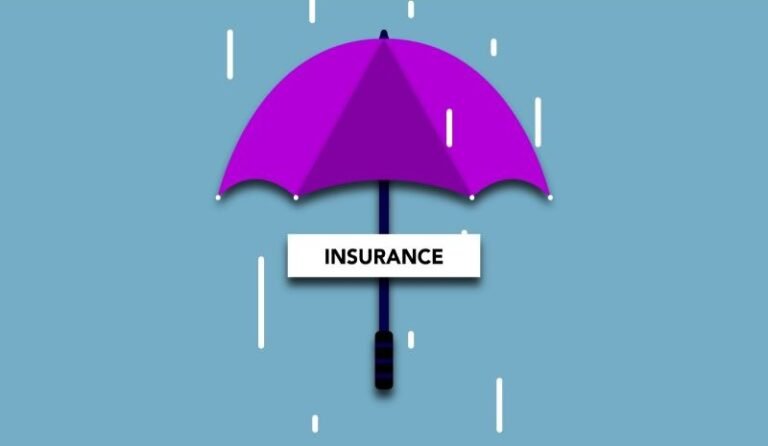In the ever-changing and uncertain world of today, insurance serves as a cornerstone of financial stability, providing a layer of protection against life’s unpredictabilities. Insurance, at its foundation, is a contract of assurance and confidence that protects people and companies’ assets and well-being from unexpected dangers and damages. Acting as a safety net, it offers protection against financial consequences from unforeseen events such as diseases, accidents, and disasters.
The importance of insurance impacts the economy by protecting people, companies, and the general public in equal measure. Insurance provides people with peace of mind by protecting them and their loved ones from the severe financial responsibilities that may come with life’s uncertainties. In an unpredictable world, insurance gives people a sense of security and stability by safeguarding their income, cars, homes, and health.
Insurance is essential to risk management and continuity planning for businesses because it protects their finances and operations from liabilities and possible dangers. Businesses rely on insurance to manage the wide range of risks present in today’s business climate, from property insurance to guard against physical losses to liability coverage to protect against lawsuits and damages.
Furthermore, understanding insurance is crucial for the whole economy in addition to personal and commercial goals. Effective insurance promotes flexibility and minimizes the financial impact of major events and disasters, which in turn promotes economic stability. Insurance provides financial resources to support recovery efforts and spreads risks among a varied pool of policyholders, enhancing the economy’s overall resilience and sustainability.
Essentially, insurance is a vital part of economic growth and well-being, not only a financial product. Knowing insurance enables people and organizations to make financially responsible decisions and to face life’s risks with strength and trust. Let’s examine the various levels of protection that insurance provides and recognize its significant influence on both our lives and the environment as we delve deeper into the details of it.
Also Read: How to Earn Money Without Investing in 2024
Table of Contents
ToggleWhat is Insurance?
Insurance is a type of financial plan aimed at protecting people, companies, and other organizations from the possibility of suffering financial loss as a result of unexpected situations or events. Insurance is fundamentally a contract between the insured and the insurance firm, sometimes referred to as the insurer.

Key Elements of Insurance:
a. The Insured: The term “insured” describes the person or organization looking for financial security against particular risks or hazards. This could be a major organization, a small firm, or a single homeowner.
b. The Insurer: The insurer is the insurance provider that takes on the financial risk involved in providing coverage to the insured and underwrites the insurance policy. The premiums that insurers receive from policyholders are combined, and claims are paid out of this money when insured losses happen.
c. Premium Payments: The insured pays the insurer on a regular basis in exchange for the assurance of financial security. These payments are referred to as premiums. Usually paid monthly, quarterly, or annually, premiums are determined by taking into account the insured’s risk profile, the type of insurance policy, the extent of coverage, and other important factors.
d. Specified Losses: Insurance plans specify the kinds of risks or hazards that are covered as well as the particular situations in which the insurer will pay the insured money. Events like property loss, physical harm, disease, disability, death, or liability claims are a few examples of these.
e. Financial Compensation: In the case of a covered loss, the insurer consents to pay the insured money in the form of a lump sum payout or repayment for actual costs. The insured can rebuild their financial stability and recover from the financial impact of the loss with the aid of this compensation.
Principles of Insurance
A set of basic principles supports insurance operations and regulates the contractual arrangement between the insurer and the insured. It is crucial to comprehend these ideas in order to guarantee accountability, justice, and transparency in the insurance sector.
1. Utmost good faith: A basic principle of insurance contracts is utmost good faith. Honesty and transparency in all transactions are needed by both the insured and the insurer. As such, all material facts pertaining to the insurance contract must be disclosed in a full and correct manner. Denying a claim or breaching the insurance contract are examples of substantial misrepresentation—the absence of relevant facts.
2. Insurable Interest: The term “insurable interest” describes the insured party’s financial interest in the topic of the insurance policy. To put it clearly, if what was insured happens, the insured must stand to lose money. By preventing people from getting insurance on assets in which they have no personal interest, insured interest guarantees that insurance contracts are founded on reasonable financial risks. A stranger does not have an insurable interest in a homeowner’s property, for instance.
3. Indemnity: According to the indemnity concept, insurance is intended to put the insured back in the same financial situation that they were in prior to the loss, neither better nor worse. Put another way, the purpose of insurance is to compensate for genuine losses incurred rather than to provide the insured with a source of profit. Because of this, insurance policies normally compensate the actual cost of the loss or damage, less any deductibles, up to the coverage limits of the policy.
4. Contribution: When an insured person has overlapped insurance coverage for the same risk with several insurers, the contribution principle comes into play. According to the coverage specified by each insurer’s individual policy, each insurer is responsible for paying a reasonable percentage of the claim in such circumstances. This approach prevents overcompensation by guaranteeing that the insured does not get more than the actual worth of the loss from several insurance policies.
5. Subrogation: Following a claim settlement, the insurer has the authority to assume the insured’s position and take legal action against any third party accountable for the loss or damage. Subrogation rights allow the insurer to lessen its own financial burden by pursuing recovery of the full claim payment from the party who was at fault. By holding people liable for losses covered by insurance policies accountable, reimbursement contributes to the integrity of the insurance system.
Demonstrating the Use of Principles: Insurance contracts are based on these principles, which guarantee accountability, transparency, and justice for all parties. For instance, throughout the underwriting process, the insured and the insurer are both required by the concept of utmost good faith to supply accurate and comprehensive information. Insurance contracts are guaranteed to be founded on real financial risks rather than speculative bets, thanks to insured interest. While contribution and subrogation guard against overcompensation and hold liable parties accountable for their conduct, indemnity guarantees that insurance covers genuine losses incurred. Insurance contracts function ethically and fulfill their original purpose of giving people and businesses alike financial security and peace of mind when they adhere to these standards.
Also Read: How to Open SBI PPF Account Online
Types of Insurance
Insurance is essential for protecting people and companies from a range of risks and uncertainties. Here, we examine various insurance plans, each created to meet particular requirements and offer financial protection against unanticipated losses.
Life Insurance
In the event of the insured’s death, life insurance provides beneficiaries with financial stability. It helps the specified beneficiaries pay for things like funeral fees, mortgage payments, and continuing living expenses by giving them a lump sum payment (death benefit). For instance, a young couple with dependents would buy life insurance to protect their family’s finances in the event of the insured’s unexpected death.
Health Insurance

Medical costs associated with disease, injury, or preventive care are covered by health insurance. By covering hospital stays, doctor visits, prescription drugs, and other healthcare services, it helps people control their medical expenses. For example, having health insurance can lower out-of-pocket costs by covering routine checkups, diagnostic testing, and treatments for chronic disorders.
Property Insurance
Property insurance guards against harm or theft of tangible things, including houses, cars, and personal possessions. While auto insurance gives defense against accidents, theft, and liability claims, home insurance covers losses brought on by calamities like burglary, theft, fire, and natural disasters. For instance, after a house fire, homeowners can make a claim for repair expenses, and people with auto insurance can get paid for damage to their vehicles after an accident.
Liability Insurance
Legal duties resulting from property damage or injuries brought on by the insured’s fault or other activities are covered by liability insurance. It offers monetary defense against the court and associated expenditures, such as court fees, settlements, and awards. For example, a professional may get malpractice insurance to guard against allegations of carelessness or mistakes, or a business owner may get general liability insurance to cover third-party accident claims on their property.
Business Insurance

Business insurance includes a range of coverage options designed to shield companies from liability and financial losses. In addition to standard coverage like directors and officers (D&O) and cyber liability insurance, it also covers property, liability, and business interruption insurance. For instance, a manufacturing corporation may get product liability insurance to cover claims resulting from defective products, while a small business owner may get commercial property insurance to safeguard their facilities and equipment from fire damage.
Examples and Scenarios:
- To provide financial stability for their children in the event of the primary breadwinner’s passing, a family buys a term life insurance policy.
- A person enrolls in a health insurance plan provided by their company in order to pay for prescription drugs, unexpected medical emergencies, and regular checkups.
- In order to safeguard their assets against potential dangers like fire, theft, and natural calamities like earthquakes or hurricanes, homeowners get homeowners insurance.
- A business owner purchases general liability insurance to protect themselves from lawsuits alleging that their operations have resulted in property damage or bodily harm.
- To guard against allegations of carelessness or errors in providing professional services, such as legal or accounting services, a freelancer buys professional liability insurance, often known as mistaken identity insurance.
How Does Insurance Work?
For people and companies looking to protect themselves financially from unexpected risks and losses, it is essential to understand how insurance works. Let’s examine the insurance process in detail, going over important phrases and ideas as we go from getting a policy to making a claim and getting paid:
1. Purchasing a Policy
- The purchase of a policy, in which the insured (the person or thing looking for coverage) signs a contract with an insurance provider (the insurer), is the first step in the insurance process.
- The policy describes the criteria, terms, and specifics of the coverage, including the kinds of risks that are covered, the coverage limits, the premiums, the deductibles, and the exclusions.
2. Key Terms and Concepts
- Premiums: In exchange for coverage, the insured pays the insurer premiums on a regular basis. Depending on the conditions of the policy, premiums may be paid quarterly, monthly, semi-annually, or annually.
- Deductibles: The amount that an insured must pay out-of-pocket prior to the start of insurance coverage is known as the deductible. Generally speaking, lower deductibles lead to higher premiums, whereas greater deductibles result in reduced premiums.
- Coverage Limits: The greatest amount that the insurer will pay for covered losses under the policy is referred to as the coverage limit. It’s critical to comprehend coverage limits and make sure they suit your demands in terms of both money and risk.
- Policy Exclusions: The conditions, incidents, or hazards that are not covered by the insurance policy are listed in the policy exclusions. In order to fully understand the extent of coverage and any potential gaps in protection, it is essential that policy exclusions be thoroughly reviewed.
3. Filing a Claim
- The insured must contact the insurance company and submit a claim form describing the type of loss, its cause, and any supporting documents in the event of a covered loss or claimable occurrence.
- The claims department of the insurer normally handles claims processing, verifying the claim’s legitimacy in accordance with the policy’s terms and conditions.

4. Receiving Compensation
- The insurer will pay the insured according to the terms and conditions of the policy after approving the claim.
- Payments in cash, property replacements or repairs, reimbursement for medical costs, or liability insurance for legal costs are some examples of compensation.
5. Role of Insurance Professionals
- Insurance agents: Serving as an intermediary between the insured and the insurance provider, insurance agents assist people and organizations in identifying their insurance requirements, evaluating their options for policies, and selecting the right level of coverage.
- Underwriters: Based on the applicant’s risk profile, coverage requirements, and industry norms, underwriters evaluate risks, assess insurance applications, and set terms and premiums for insurance policies.
- Claims Adjusters: Claims adjusters look into insurance claims, confirm the severity of the damage or loss, and figure out how much the insured should be compensated. They are essential to the prompt and equitable settlement of claims.
Benefits of Insurance
In addition to providing protection against unexpected emergencies, financial security, and peace of mind, insurance offers both individuals and organizations tremendous advantages. A closer look at the benefits of having insurance coverage is provided below:
- Financial Security: Insurance protects against unplanned costs and losses by acting as a safety net. Insurance coverage can help pay for related expenses in the event of sickness, accidents, or property damage, shielding people and organizations from serious financial trouble. When it comes to paying for missed salaries, replacing damaged property, or covering medical expenses, insurance offers a vital financial safety net that enables people and organizations to face life’s challenges head-on.
- Peace of Mind: Having insurance coverage in place helps reduce anxiety and worries regarding possible risks and liabilities. Whether you need insurance for your health, house, car, or business, having it frees you from worrying about possible financial difficulties, so you can concentrate on your everyday tasks and long-term objectives. Knowing that you are safeguarded against unforeseen circumstances is a priceless source of peace of mind that improves general wellbeing and lowers stress levels.
- Protection Against Major Emergencies: When it comes to safeguarding against emergencies that could result in severe financial loss, insurance is very important. Massive losses may arise from accidents, natural disasters, or unexpected circumstances if adequate insurance coverage is not in place. Insurance acts as a vital safety net, preventing you from going bankrupt in the wake of catastrophic occurrences like a serious medical emergency, a fire that destroys your home, or a lawsuit brought against your company.
- Risk Management and Financial Planning: Careful financial planning and risk management are greatly aided by insurance. Individuals and organizations can choose insurance policies that match their unique needs and goals by recognizing potential risks and obligations. Insurance enables proactive risk reduction and financial readiness through an accurate examination of coverage options and policy conditions. Individuals and companies can safeguard their assets, investments, and means of subsistence by shifting the risk to an insurance provider, guaranteeing long-term resilience and stability in their finances.

Considerations When Choosing Insurance
Choosing the appropriate insurance coverage is an important choice that needs to be carefully planned out, and many criteria must be evaluated. When selecting insurance, people and organizations should keep the following important considerations in mind:
- Determine Coverage Needs: Based on your personal or professional situations, determine your exact coverage needs before buying insurance. Think about factors like your income, assets, liabilities, and possible dangers. For instance, homeowners insurance is necessary to guard against theft or property damage if you are a home owner. In the same way, companies should assess their operational risks—like exposure to liability or property damage—and choose the right kinds of coverage.
- Evaluate Estimates: To evaluate policy terms, premiums, deductibles, and coverage options, get estimates from many insurance companies. Although price is a significant consideration, don’t limit your search to the least expensive insurance plan. Rather, give top priority to locating insurance that fulfills your unique requirements and provides sufficient coverage. When comparing quotes, take into account variables including the insurer’s standing, financial stability, and standard of customer service.
- Examine Policy Terms and Conditions: Before making a choice, carefully go over each insurance policy’s terms and conditions. The policy’s coverage limitations, exclusions, deductibles, and any extra features or riders should all be carefully read. Make sure you comprehend everything that is and isn’t covered, including any duties or responsibilities you have in your capacity as the policyholder. Never be afraid to ask the insurance company or agent for clarification if you have any questions or concerns.
- Periodic Reviews are Important. A variety of things, including life events, business expansion, and shifts in the market, can cause an insurance policy’s demands to vary over time. It’s critical to regularly assess your insurance coverage to make sure it still meets your needs and is appropriate for your current situation. Think about reviewing your business or life every year or if there are major changes. Reevaluate your coverage requirements during the review process, adjust policy limits as needed, and look into any new insurance options or potential savings.
Modify Coverage as Needed: Take proactive steps to modify your insurance policy to account for evolving risks and conditions. For instance, to guarantee proper coverage, you might need to renew your homeowners’ or auto insurance if you’ve recently bought a new house or car. In the same way, companies that grow, launch new goods or services, or deal with changing risks should periodically review their insurance requirements. You can manage these changes and make wise decisions about changing your coverage by working with an expert insurance agent or advisor.
Both people and companies can safeguard themselves against unexpected risks and uncertainties while guaranteeing financial stability and peace of mind by following these guidelines and adopting a proactive approach when selecting and managing insurance coverage.
Reach out to me for free financial consultation of your Insurance needs:
Check your credit score for FREE & get customised recommendations.
Simply click the button & follow these 3 steps 👇
STEP 1: Enter your Basic Details
STEP 2: Submit OTP
STEP 3: Enter Personal details
Start now & know your credit score 🎯
Conclusion
In summary, research on insurance shows how important it is for protecting people, companies, and society at large from unanticipated risks and uncertainties. Several important conclusions from this conversation highlight the importance of insurance in our daily lives:
First and foremost, insurance is an essential instrument for ensuring financial security, acting as a safety net against the financial consequences of unexpected events like diseases, accidents, natural catastrophes, and liability claims. Through the transfer of risk regarding prospective losses to insurance firms, both individuals and organizations can lessen the negative effects of unfavorable events on their financial stability.
Second, insurance is essential for fostering resilience and stability in the economy. Insurance serves to lessen the negative consequences of significant disruptions and disasters by distributing the financial weight of losses among a large pool of policyholders, which promotes economic stability overall.
As we come to the end of our investigation into insurance, it is critical to acknowledge the significance of continuing education and understanding in this field. Readers are invited to look deeper into the specifics of insurance products, coverage options, and policy terms, even if this discussion offers an overview of insurance ideas. Both people and organizations can make well-informed decisions that are consistent with their financial objectives and risk tolerance by being active and knowledgeable when evaluating their insurance needs.
Essentially, insurance gives individuals and companies the ability to face life’s uncertainties head-on and with courage. Let’s embrace the concepts of insurance and make use of its safeguards as we move closer to achieving financial stability and peace of mind. Together, we can create a more promising and safe future for our communities and ourselves.
